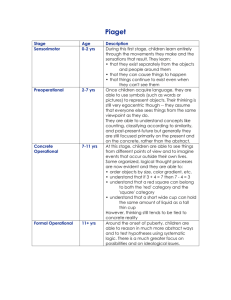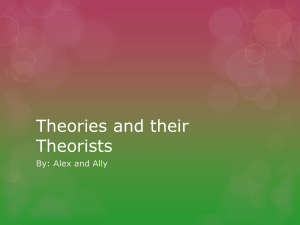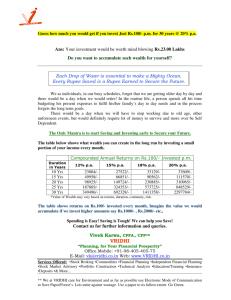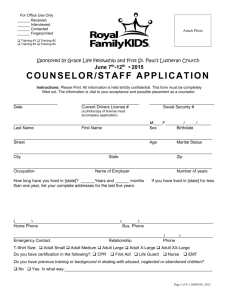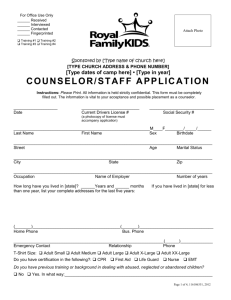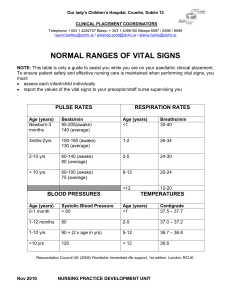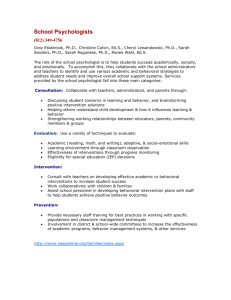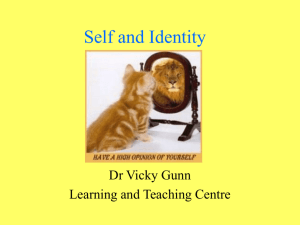Introduction to Behavioral Science
advertisement
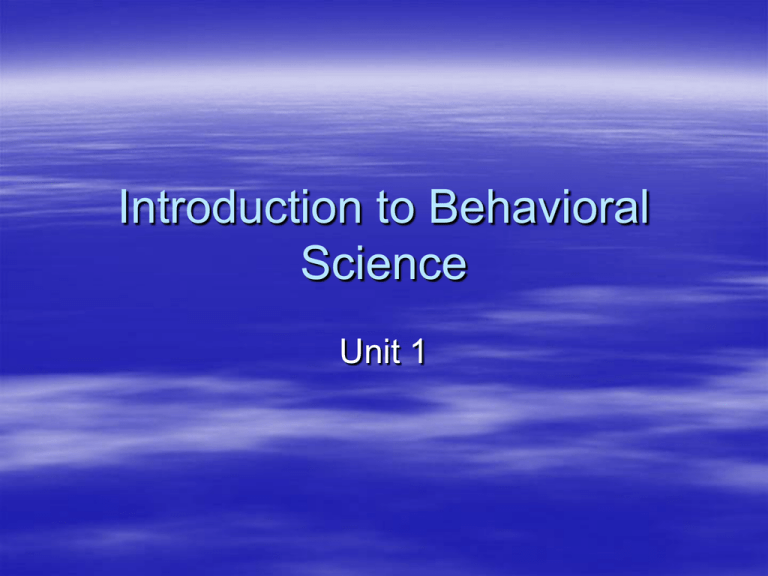
Introduction to Behavioral Science Unit 1 I. Social Sciences The study of society and the activities and relationships of individuals and groups within society. All subject matter is approached by a scientific approach II. Social Studies Courses of instruction in an elementary or secondary school, encompassing social sciences such as Geography History Political sciences III. Behavioral Sciences They must deal with humans directly Animals are sometimes used for studying purposes Three types of Behavioral Sciences Psychology – studies of behavior or the individual (personality, learning, etc.). Sociology – studies the behavior of man in groups. Focuses on: 1. 2. 3. How and why groups develop. The mores and folkways that govern them Mores – formal, written rules or laws Folkways – informal, accepted ways of doing things Anthropology – Studies behavior within a culture (culture-knowledge, beliefs, values, customs, etc.) that are learned. Types of Research Methods Experimental – A research method designed to answer questions about cause and effect – Its main advantage over other data gathering methods is that it permits the researcher to control conditions, etc. Sample Survey – Take a sample of a group that you are studying and survey them Case Study – Intensive study (in-depth) of a single person or group Natural Observation – You analyze a situation without getting involved (researcher stays out of the way – Also referred to as Field Study – Most of the time the participants don’t know they are being watched Types of Research (cont’d) Participant Observation – you join an existing group. (researcher actually gets involved) – Joins the military – Joins a cult All research must be Both valid and reliable – Valid – Does the research measure what it’s suppose to measure – Reliable – The research must yield reasonably consistent results Types of Research Methods (Continued) Lets suppose we as a class wanted to do an experiment, how might we set the experiment up? – Experimental group – Those subjects experiencing the experimental condition – Control group – Same as above but this group experiences the key factor the Psychologist (or any other social scientist) is evaluating. Scientific Method (Approach) 1. 2. 3. 4. 5. State the problem Hypothesize Gather empirical data Interpret the data, test your hypotheses Evaluate and conclude Requirements of the Scientific Method 1. 2. 3. 4. Procedures must be public Definitions must be clear and precise Collection of data must be objective Findings must be reproducible Spirit of Science In order to practice the spirit of science, one must be prejudice free, devoted to critical thinking, curious, and seeking truth Science Goals of Science – Describe behavior (ex. Jane was throwing food in the cafeteria) – Explain behavior (understand) A behavioral scientist seeks to explain this behavior in the form of a hypothesis Studies would have to be done to test the hypothesis. – Predict behavior – behavioral scientists would predict: Would the behavior continue Is this the natural behavior – Change Behavior (control) – behavioral scientists would try to: Control the behavior Influence and change behavior Science Advantages of Science – Science can correct mistakes – Build on previous discoveries Key assumptions of science – Operationalism Objective and accurate measurement of variables – Determinism Any event can be explained by casual laws There is reasons/causes for everything – Invariance Laws do not change Science Common Misconceptions about science – “Science is the same as statistics.” (although statistics can be a useful tool, they are not the same as science) – “Science is synonymous with technology.” Science may use technology, but it is not technology itself. Research ethics – – – – – – Is the researcher biased? Does/can the subjects know they are being studied? Are the Subjects safe? Is the knowledge misused? Is the research on humans/animals ethical? Should some topics not be studied? Psychologist vs. Psychiatrist Psychologist – – – – – – 5 yrs. B.S. psychology 2 yrs. Masters in psychology 4 yrs. PhD psychology 6 yrs supervised training before individual works alone with patients 10 yrs training Can’t give medicine Psychiatrist – – – – – 5 yrs. B.S. Pre Med 4 yrs. Med School 3 yrs. Residency – have patient load 11 yrs. Training Can prescribe medicine In Class Assignment You are now going to go through a make believe research project (I want to see if you understand the Research Method) – – Pick a behavior that you see here at school that would be good to explain Put this idea into the Scientific Method for a fictitious study 1. 2. 3. 4. 5. What is the purpose of the study What is your hypothesis What type of research would you use for this study What data do you think you would come up with What do you think your conclusion would be
